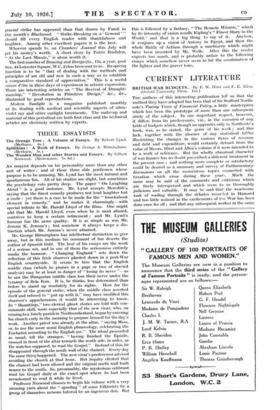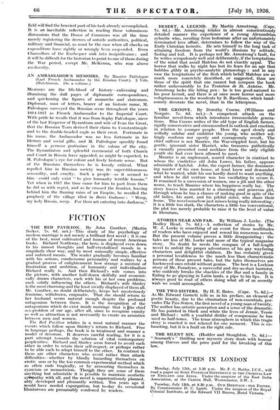CURRENT LITERATURE
THE authors of this interesting publication tell us that the method they have adopted has been that of Sir Stafford North- cotes Twenty Years of Financial Policy, a little masterpiece which has been the prototype of more than one subsequent study of the subject. In one important respect, however, it differs from its predecessors, viz., in the omission of any table of budgets which, though an appendix only toNortheote's book, was, as he stated, the germ of his work ; and this lack, together with the absence of any statistical ta).A.es illustrating the changes in the various items of revenue and debt and expenditure, would certainly detract from the value of Messrs. Hirst and Allen's volume if it were intended to be a work of reference. But the wholly abnormal character of war finance has no doubt prescribed a different treatment in the present ease ; and nothing more complete or satisfactory could be desired as a summary and survey of Parliamentary discussions on all the momentous topics connected with taxation which arose during these years. Much the same may be said of the comments and criticisms which are freely interspersed and which seem to us thoroughly judicious and valuable. It may be said that the wearisome task of wading through the debates recorded in Hansard and too little noticed in the excitements of the War has been done once for all ; and that any subsequent worker in the same
field will find the heaviest part of his task already accomplished. It is an inevitable reflection in reading those voluminous discussions that the House of Commons was all the time merely registering the decrees of outside authorities, political, military and financial, as must be the case when all cheeks on expenditure have rightly or wrongly been susp ended. Even Chancellors of the Exchequer sink into insignificance ; and it Will be difficult for the historian to point to one of them during the War period, except Mr. McKenna, who rose above mediocrity. ' • -











































 Previous page
Previous page